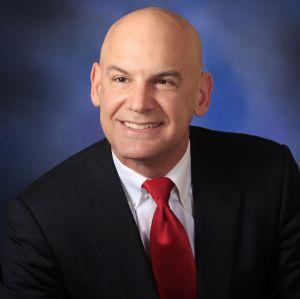
Credit: Baylor College of Medicine
Cardiovascular disease remains the leading cause of pain, suffering and death in the United States, and despite tremendous advances in knowledge on prevention, treatment of risk factors such as cholesterol, blood pressure and obesity is not optimal.
One of the goals of Dr. Christie Ballantyne’s lab at Baylor College of Medicine is studying whether novel biomarkers, in combination with other factors, might be useful in identifying individuals at high risk for cardiovascular disease.
“Improved methods to identify individuals who are at the highest risk are very important to personalize therapy so that the most intensive efforts for prevention are focused on the individuals at highest risk,” said Ballantyne, professor of medicine and chief of the section of cardiology at Baylor.
In this study, Ballantyne and his colleagues analyzed data on more than 8,000 participants between the ages of 54 and 74 from the Atherosclerosis Risk in Communities (ARIC) study. They found that increased levels of troponin I were associated with cardiac outcomes, specifically heart attack and fatal coronary heart disease, stroke, heart failure hospitalization and death. The ARIC study is an ongoing, biracial long-term study (dating back 30 years) in four communities in the United States designed to investigate the causes of atherosclerosis and its clinical outcomes.
When researchers added troponin I to the Pooled Cohort Equation, a commonly used risk prediction model, there was a modest yet statistically significant improvement in risk prediction, with the greatest improvement in predicting the risk for developing heart failure.
One of the surprising aspects of this study was the observation that measurement of another protein, troponin T, which is also used commonly for the diagnosis of heart attack, provided additional information: those with elevations of both biomarkers had an increased risk for cardiovascular disease events and death compared with those with elevated troponin I or troponin T alone.
“Improved blood tests such as high-sensitivity troponins may be important tools to identify more precisely who is at greatest risk, and future studies will need to test the optimal methods to prevent heart attacks, strokes and heart failure in such individuals,” Ballantyne said.
Interested in reading all the details of this work? Find it in the journal Circulation.
###
Others who took part in the study include Dr. Xiaoming Jia, Wensheng Sun, Dr. Ron C. Hoogeveen, Dr. Vijay Nambi (Michael E. DeBakey Veterans Affairs Medical Center), all with Baylor College of Medicine; Dr. Kunihiro Matsushita and Dr. Elizabeth Selvin, Johns Hopkins University; Dr. Aaron R. Folsom, University of Minnesota; Dr. Gerardo Heiss and Dr. David J. Couper, both with University of North Carolina at Chapel Hill; Dr. Scott D. Solomon and Dr. Amil Shah, Brigham and Women’s Hosptial; Dr. Eric Boerwinkle, University of Texas Health Science Center; Dr. James A. de Lemos, University of Texas-Southwestern Medical Center. Ballantyne also is the director of the María and Alando J. Ballantyne, MD Atherosclerosis Clinical Research Laboratory and director of the Center for Cardiometabolic Disease Prevention at Baylor. He also holds the J. S. Abercrombie Chair in Atherosclerosis and Lipoprotein Research at Baylor.
View the publication for funding and acknowledgements.
Media Contact
Graciela Gutierrez
[email protected]
Original Source
https:/
Related Journal Article
http://dx.




